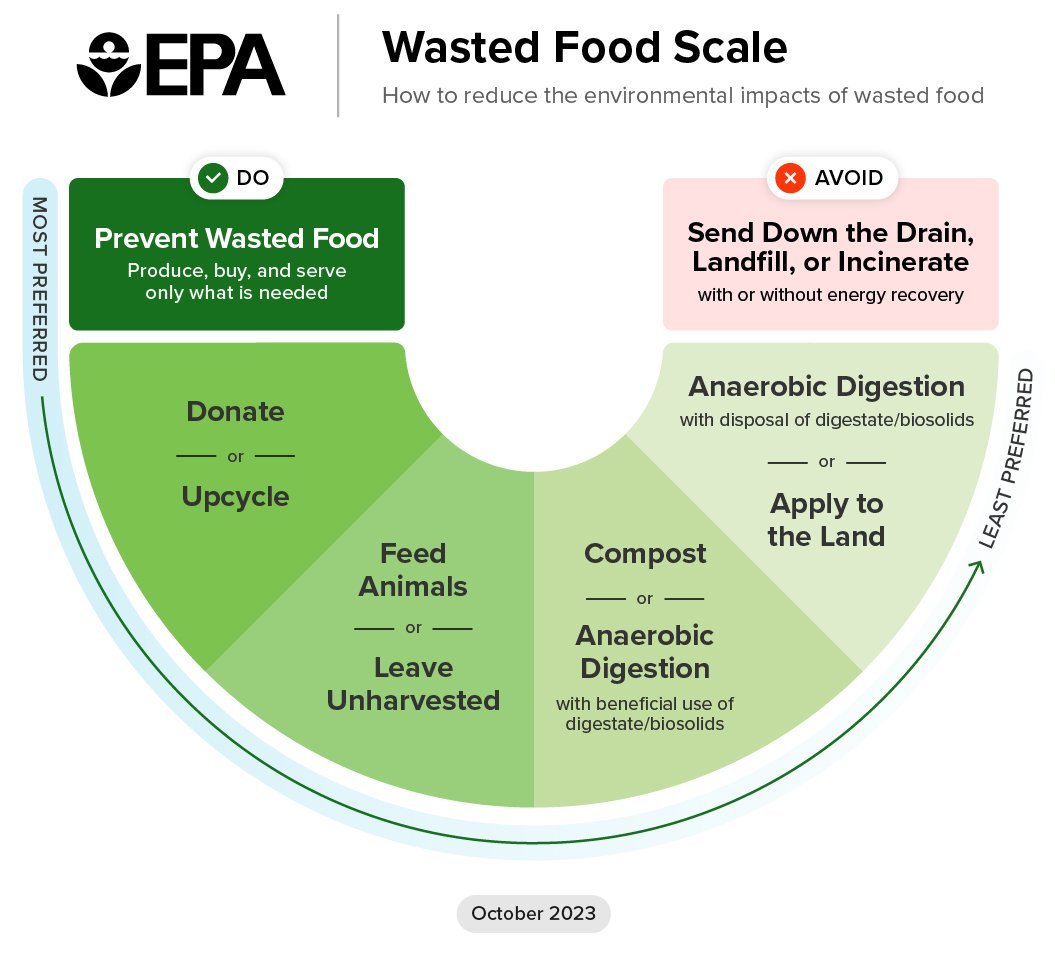SB1383 and Food Recovery: What’s the Connection?
SB 1383's’s urgent implementation may seem sudden, but here in California, the ongoing climate and hunger crises cannot wait - and this law’s food recovery requirement is a vital part of the solution.
Senate Bill 1383’s critical importance lies in the fact that it is so closely tied to the Short-Lived Climate Pollutant Reduction Strategy that was established by the California Air Resources Board (ARB).
“Short-lived climate pollutants”, or SLCPs, include gases like Black carbon, methane, and hydrofluorocarbons. These SLCPs remain in the atmosphere for much shorter amounts of time than other greenhouse gases, yet, based on the ARB’s research, these short-lived gases have the potential to warm the atmosphere at alarming rates.
As atmospheric temperatures increase, extreme weather and its harmful side effects (droughts, wildfires, deep freezes, loss of life) become more commonplace.
When taking these facts into account, along with the insights provided by the EPA’s new Wasted Food Scale below, it becomes clear why a swift and immediate reduction in short-lived climate emissions is a strong first step forward.
SB1383’s food recovery requirements align neatly with the ‘most preferred’ methods in the Wasted Food Scale above. The least preferred methods, including composting and anaerobic digestion, still produce significant amounts of pollution. Source.
Why is Donating food surplus “preferred” over Composting or Recycling?
When food surplus is recycled or used as compost, there is still a significant cost to the environment.
Both recycling and composting involve processes that produce harmful short-lived pollutants, like methane. SB1383 regulations aim to reduce the emission of these gases by mandating that ‘commercial edible food generators’ donate the edible food surplus from their daily operations. Hospital and university kitchens, caterers, hotels, and grocery stores are examples of food generators that will be affected by this legislation.
Additionally, with the COVID-19 pandemic emergency being declared over, emergency funds for those affected have ended as well. More and more Californians are relying on food banks or community organizations for direct food assistance; when you donate your surplus food, you directly aid those affected by food insecurity.
Is SB1383 Just a Food Recovery Bill?
Food recovery, while crucial, is just one tool in the larger fight against the climate crisis.
Reaching SB1383’s 2030 targeted reduction goal will require a big effort across the board - several different initiatives regarding waste management (like new regulations surrounding sorting waste or obtaining waste hauling permits) will be implemented alongside food recovery strategies.
Food recovery is, however, one of the spaces in which the most immediate action can be taken to reduce GHG (greenhouse gas) emissions.
Additionally, food recovery is actually outlined as a requirement for those designated as food generators.
In CalRecycle’s Statement of Reasons, more details are provided regarding how these programs must be implemented, who is responsible for overseeing them, and what exactly is required to demonstrate compliance.
So - how does Replate fit into this equation?
As outlined in California Senate Bill 1383 - Replate would be considered a food recovery service or organization. We can help a commercial food generator become compliant with the bill by rescuing and redistributing their edible food surplus.
Commercial food generators can reach out to Replate to establish a relationship with us, and we can guide them through complying with SB 1383. We will manage and store their donation data (such as # of pounds rescued), pickup schedule, and other valuable information related to donating surplus food. This information can be accessed at any time to demonstrate compliance with the bill.
—----
The next part of this SB1383 blog series can be found here!
Current or prospective food donors can find more information on SB1383 here.
Catch up on Part 1 of this blog series, “What exactly is SB1383?” here.

